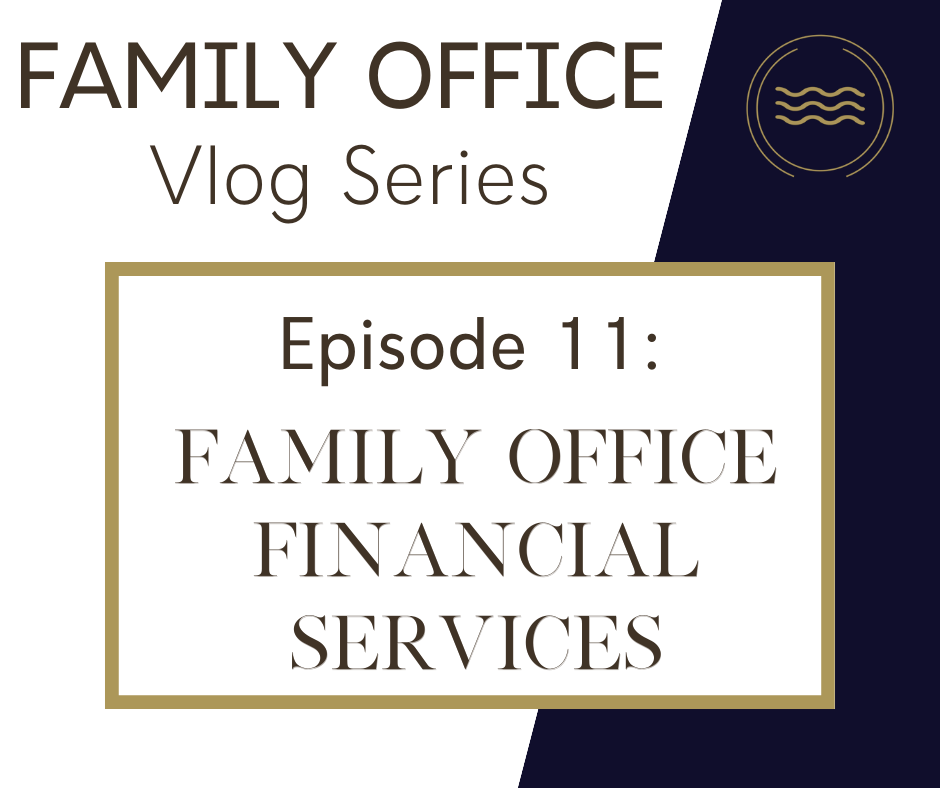
Family Office Real Estate
Family Office Real Estate
In the world of high-net-worth individuals and affluent families, the intersection of finance and real estate is a dynamic realm where opportunities for wealth preservation and growth abound. Family offices, which serve as the financial command centers for these wealthy families, play a pivotal role in navigating the intricate landscape of real estate investments, private equity investment, and other wealth management tools for these families.
In this article, we delve into the intriguing domain of “Family Office Real Estate,” exploring the motivations behind family offices’ engagement in real estate investments, the advantages they accrue from such endeavors, the diverse types of real estate assets they consider, and the evolving landscape of real estate investments before, during, and after the global pandemic.
Do Family Offices Invest in Real Estate?
Family office clients often have a vast option of investment opportunities due to the size of their wealth. Many family offices frequently allocate a significant portion of their investment portfolios to real estate assets. These sophisticated wealth and asset management entities recognize the value of real estate as a reliable and diverse asset class that provides a range of advantages.
Real estate investments offer stability through rental income, the potential for long-term appreciation, and a degree of control over tangible assets. Additionally, real estate can contribute to portfolio diversification, reduce tax liabilities through various incentives, and even have a positive impact on the communities where these investments are made. As such, the integration of real estate within family office investment strategies is a well-established practice aimed at achieving both financial growth and wealth preservation.
What Is a Family Office in Real Estate?
A family office in the context of real estate is a specialized division or entity within a family office structure that is dedicated to managing the real estate investments of high-net-worth families and affluent individuals. Its primary mission is to oversee all aspects of the family’s real estate portfolio, from the initial acquisition of properties to their development, management, and eventual disposition.
This dedicated arm of the family office ensures that the real estate investments align seamlessly with the broader financial goals and objectives of the family. It plays a crucial role in identifying lucrative real estate opportunities, implementing strategic investment decisions, and efficiently managing the assets to optimize returns and mitigate risks. In essence, a family office in real estate acts as the steward of the family’s property interests, offering specialized expertise and comprehensive services to navigate the complexities of the real estate market effectively.
1. What Is the Purpose of a Family Office?
The primary purpose of a family office is to manage the financial and non-financial affairs of high-net-worth families. Family offices provide a suite of financial services to clients, including investment and asset management, estate planning, tax optimization, philanthropic planning, and, in some cases, real estate management. Their overarching goal is to preserve and grow the family’s wealth over generations while also addressing the diverse needs and aspirations of the family members.
2. Family Offices Investing in Real Estate
Family offices are increasingly diversifying their investment portfolios by venturing into the world of real estate. This strategic allocation of capital into real estate assets is often driven by the desire to achieve both wealth preservation and growth. Just like in venture capital and other private investments, family offices meticulously conduct due diligence in their real estate endeavors.
They assess properties, markets, and potential risks to make informed decisions, ensuring that their real estate investments align with their financial goals and long-term wealth management strategies. This intersection of venture capital principles and real estate allocation illustrates the evolving strategies employed by family offices to safeguard and grow their wealth in an ever-changing financial landscape.
Real estate investments are favored for their potential to provide stable cash flow through rental income, long-term appreciation, and control over tangible assets.
The extent of real estate investments can vary from one family office to another, depending on their investment strategies, risk tolerance, and financial goals. Real estate investments encompass various types of properties, from residential and commercial to industrial, and may include real estate funds, development projects, and more. These investments are chosen strategically to complement the family’s broader investment portfolio.
3. How Much Money Do You Need for Family Office?
Establishing a family office typically requires a substantial level of wealth, often ranging from $100 million or more. However, the exact amount needed can vary widely depending on factors such as the complexity of the family’s financial affairs and their desire for personalized wealth management services.
Smaller family offices may opt for outsourcing certain functions or using multi-family offices to access similar services without the need for extensive in-house operations. The decision to create a family office is deeply personalized and based on the unique circumstances and objectives of the family in question. Running a single-family office tends to be more expensive than running a multi-family office. This needs to be considered when determining which type of family office is ideal for the family.
Advantages Of Real Estate Investing for Family Offices
Real estate investing holds a prominent position within family office portfolios due to a multitude of compelling advantages it offers:
1. Cash Flow
Real estate properties, particularly rental properties, generate a consistent stream of rental income. This dependable cash flow can provide financial stability and serve as a reliable source of income, aligning with the long-term financial security goals of family offices.
2. Appreciation
Historically, real estate has demonstrated the potential for long-term appreciation in value. Properties often increase in worth over time, contributing to the growth of family wealth and asset preservation.
3. Control
Family offices enjoy a high degree of control over their real estate investments. They can make strategic decisions about property management, development, and investment timelines, allowing for tailored strategies that align with their unique objectives.
4. Benefits the Community
Real estate investments, such as development projects or revitalization efforts, can have a positive impact on local communities. They create job opportunities, improve infrastructure, and contribute to the overall betterment of the areas where these investments are made, fostering goodwill and potentially enhancing the reputation of the family office.
5. Tax Efficiency
Real estate investments often come with significant tax advantages. Strategies such as depreciation deductions and section 1031 exchanges can help minimize tax liabilities, allowing family offices to retain more of their earnings.
6. Portfolio Diversification
Real estate adds a valuable layer of diversification to a family office’s investment portfolio. It behaves differently from traditional financial assets like stocks and bonds, potentially reducing overall risk by providing a hedge against market volatility.
Type Of Real Estate Investments Asena Advisors Consider
At Asena Advisors, we consider a wide spectrum of real estate investments for our family office clients to diversify their portfolios and meet their specific financial goals. These investment options may include residential properties, such as single-family homes or apartment complexes, which can offer consistent rental income.
Commercial properties, such as office buildings and retail spaces, provide opportunities for long-term leases with established tenants. Industrial properties like warehouses and manufacturing facilities are valued for their potential income and appreciation. Real estate investment trusts (REITs) offer a way to invest in real estate without direct ownership of properties.
Family offices also explore real estate development projects, which involve constructing or renovating properties to create value. Furthermore, they may engage in real estate funds and partnerships, allowing them to access diversified portfolios managed by experts in the field. The choice of real estate investments depends on the family’s risk tolerance, investment horizon, and overall financial strategy, allowing for tailored approaches to wealth preservation and growth.
Real Estate Investments Before, During & After Covid
The landscape of real estate investments has undergone significant shifts before, during, and after the COVID-19 pandemic. Before the pandemic, real estate was generally considered a stable and lucrative investment option. Investors favored residential properties for rental income, commercial spaces for long-term leases, and development projects for growth potential. However, when the pandemic hit, the real estate market experienced disruptions. Office and retail spaces faced challenges as remote work and online shopping became more prevalent, leading to reduced demand and vacancies. Meanwhile, the residential market remained resilient as people sought larger homes and suburbs.
During the pandemic, real estate investors adapted by focusing on properties with pandemic-resistant attributes, such as warehouses for e-commerce and healthcare facilities. Government stimulus measures and low-interest rates also supported real estate investments. As the pandemic subsided and economies began to recover, the real estate market showed signs of rebounding, especially in areas with strong demand for housing and logistics spaces. However, ongoing trends, like remote work and e-commerce, continued to shape investment strategies, with a growing emphasis on sustainability and technology integration.
Looking beyond the pandemic, the real estate sector is expected to evolve further. Investors are likely to prioritize assets that align with changing consumer preferences, such as mixed-use developments and green buildings. PropTech innovations, including digital platforms and smart building technologies, will become increasingly important. Real estate investments will continue to offer opportunities for both stability and growth, but strategies will need to adapt to the evolving needs and behaviors of tenants and consumers in a post-pandemic world.
Predictions for Real Estate Now & Beyond
Predicting the future of real estate involves considering a host of evolving trends and dynamics. In the current landscape and beyond, several key predictions emerge:
1. Technology Integration
Technology will play an increasingly pivotal role in real estate. PropTech innovations, including smart buildings, virtual tours, and digital platforms for property transactions, will become standard in the industry. These advancements will enhance efficiency, security, and convenience for both buyers and sellers.
2. Sustainability and Green Buildings
Environmental sustainability will be a dominant theme in real estate. Investors and developers will prioritize eco-friendly buildings, sustainable materials, and energy-efficient designs. Green certifications like LEED and WELL will gain prominence as buyers and tenants seek healthier and more environmentally responsible spaces.
3. Mixed-Use Developments
Urban planning will shift toward mixed-use developments that combine residential, commercial, and recreational spaces. This trend reflects changing consumer preferences for vibrant, walkable communities where live, work, and play can coexist seamlessly.
4. Suburban Revival
The pandemic accelerated the suburban revival, with people seeking larger homes and outdoor spaces. This trend is expected to persist, with suburban and exurban areas continuing to attract homebuyers and investors.
5. Logistics and Warehousing
The rise of e-commerce will drive demand for logistics and warehousing facilities. Investors will focus on properties that facilitate efficient last-mile delivery, making industrial real estate a promising sector.
6. Rental Market Growth
The rental market, particularly in urban areas, will remain strong as younger generations prefer flexibility and are slower to enter the housing market. Build-to-rent developments and single-family rentals will gain momentum.
7. Globalization and Diversification
Real estate investors will increasingly seek diversification beyond their domestic markets. International properties, particularly in emerging economies, will present opportunities for growth and risk mitigation.
8. Adaptive Reuse
Adaptive reuse projects, converting older buildings into new uses, will gain popularity due to their sustainability and cost-efficiency. Historic buildings will find new life as mixed-use spaces, cultural centers, or boutique hotels.
9. Regulatory Changes
Evolving regulations, including zoning reforms and tax incentives, will shape real estate opportunities. Governments may incentivize affordable housing, sustainable development, and urban revitalization.
10. Remote Work Impact
The future of work, including remote and hybrid arrangements, will influence office and commercial real estate. Flexible office spaces and reimagined workspaces may become the norm.
In this rapidly changing landscape, adaptability and a forward-thinking approach will be crucial for investors, developers, and real estate professionals. Staying attuned to these predictions and trends will help navigate the evolving real estate market effectively.
Explore Our Family Office Services
At Asena, our experienced staff understands the need to have a global outlook and an organizational structure that accommodates the needs of a globally mobile family. Our team also consults on family office tax advisory, compliance, financial reporting, and administration.
For more information about Family Office Real Estate,
schedule a consultation with one of our advisors via the Contact Us section to the right.



